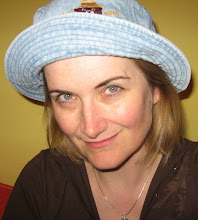Not every Croat or Serb professional or businessperson is like this -- but enough are that the others stand out like red roses on a field of snow.
Here's what happens: you start a business relationship, perhaps hiring a person in the Balkans to do a job for you or perhaps starting a business contract if some type. Everyone is smiling and nice and happy. Then, fairly soon after that your friendly employee or partner screws you. Blatantly.
I've had all sorts of people, both Serbs and Croats ask for emergency loans... and then string me along with excuses for months until I realized they never intend to pay the money back, and sometimes the "emergency" had never existed in the first place.
I've had Serb contractors, who had just finished one job but were up for rehire on another, turn in their company computers... that were just hollow shells because they'd literally stripped out the innards to use somehow elsewhere.
I've had a Croatian lawyer, who was on the US Embassy's recommended list, agree in writing to do a job for me for a particular amount, and then when he was up against my tight court deadline, he suddenly raised the amount of money required and demanded it up front before he'd do a lick of work.
The weird thing for me in all of these situations is not that people screw other people. I'm not naive. That happens in every country of the world, including America. The difference in the Balkans is that all these people screwed me when it was against their own best interest!
In each of the cases I mentioned above, I was in the midst of starting what I thought would be a longer-term business relationship with these people. One that would be very fruitful for them. But, they grabbed the chance to screw me at the very start. That lawyer, for example, knew we had a longer court case coming up.
Why cheat me at the beginning when I'll just dump you?
My theory is it's due to short-sighted Balkan mentality. Maybe if you grew up in a country where everything kept changing and falling apart over and over again, you begin to think, "forget tomorrow, grab what you can for today!" If you don't have faith in even the near future, why build toward it?
This may also explain why Balkan ex-patriots themselves very rarely invest in Serbian or Croatian business. You only hear about expats investing their savings in two things -- cafes and residential buildings. Even the infamous Pink Panther gang of international jewel thieves funnel their millions back home into almost nothing but cafes and flats in towns such as Nis. Which is incredibly stupid from both a local and national economic standpoint. Outside of limited tourism areas (which are overbuilt and underselling these days in much of Croatia) cafes and buildings don't help rebuild Serbia or Croatia's economy. They don't provide many new ongoing jobs. They don't help with exports. They don't grow expertise. They just sit there.
I do still, occasionally now, do business in the Balkans. But I catch myself flinching whenever I'm doing it. I've been burned too often.
Experiences of an American woman who was married to a Serb.
Wednesday, May 26, 2010
Tuesday, May 11, 2010
The Hidden Cost of Serbian Gasoline
I knew that the cost of gasoline (petrol) in Serbia, like the rest of Europe, would be far higher than it is in the US. We built that extra cost into our budget, and planned to drive less than we normally would at home in the US. What we didn't count on was the hidden cost of crappy Serbian petrol quality. In the US, we got about 25 miles per gallon. The same vehicle with a tankful of Serbian petrol got fewer than 18 miles per gallon, even with similar driving speeds and conditions (ie. steady highway at ~70 miles per hour.)
In the US, 87-89 octane worked great. In Serbia, we had to switch to 95 octane. Actually I think I should put that in quotes as in "95 octane" because looking at the car's performance, the number "95" was used for marketing purposes only and bore no relation to reality. If there's such a thing as an octane inspector in the Balkans, he's clearly getting paid off.
After experimentation, my husband found a petrol station in Novi Sad with a "95 octane" Euro brand petrol that worked about as well as 89 octane US. In fact, he's planning on gassing up from there from now on. It's a long drive from our house in Sombor, which has plenty of petrol stations of its own, but you get so much more mileage from the Novi Sad petrol that it's worth it.
For what it's worth, my husband says he had the same problems with Croatian petrol as well. There goes my budget.
In the US, 87-89 octane worked great. In Serbia, we had to switch to 95 octane. Actually I think I should put that in quotes as in "95 octane" because looking at the car's performance, the number "95" was used for marketing purposes only and bore no relation to reality. If there's such a thing as an octane inspector in the Balkans, he's clearly getting paid off.
After experimentation, my husband found a petrol station in Novi Sad with a "95 octane" Euro brand petrol that worked about as well as 89 octane US. In fact, he's planning on gassing up from there from now on. It's a long drive from our house in Sombor, which has plenty of petrol stations of its own, but you get so much more mileage from the Novi Sad petrol that it's worth it.
For what it's worth, my husband says he had the same problems with Croatian petrol as well. There goes my budget.
Subscribe to:
Comments (Atom)
